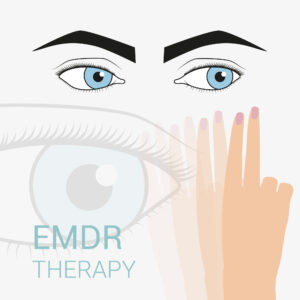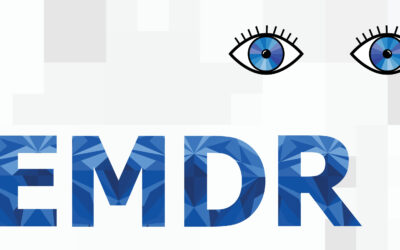Why EMDR?

Eye Movement Desensitization and Reprocessing (EMDR) is an approach to therapy that is growing more
popular by the day. In fact, you might have seen it cited on your local or national news as one of the
most sought after mental health methods by people looking for long-lasting healing. One of the reasons
EMDR comes so heavily recommended is its firm background in research. The approach is based on
years of evidence that shows EMDR brings about results more quickly than many other therapeutic
modalities. On top of all of this, EMDR has earned it’s claim to fame as being one of the most impactful
types of therapy when it comes to helping individuals heal from trauma.
You may know someone who has undergone a singular traumatic event like military combat or is the
bearer of much more subtle and subversive developmental traumas like having an alcoholic parent.
EMDR is a great tool for helping these people isolate the memories of the traumatic event, gain insight
into their meaning, and integrate them into a new narrative so that they can create an in-depth sense of
acceptance around the experience.
Besides Trauma, What Other Life Challenges Can EMDR Help Heal?
Different life challenges EMDR can be applied to are depression, anxiety, unexplained medical pain, chronic disease symptoms, grief, obsessive thoughts and compulsive behaviors, and mental blocks to performance (sports, academic, career). EMDR may sound too good to be true because it can be applied to many different areas of life. I have taken advanced EMDR trainings in all of these specific areas and have seen my clients transform their lives in a variety of ways.
It’s true that EMDR has gained notoriety as a treatment for PTSD and other instances of trauma. However, the therapeutic approach has many more uses beyond trauma work. When you schedule a session with an EMDR trained therapist, you will actually dive deep into your value system and create a holistic link between the experiences in your life and your current feelings and behaviors. Having a grasp on this connection can go a long way in helping you feel more connected to yourself.
 When You Don’t Get To The Root Of Your Problems
When You Don’t Get To The Root Of Your Problems
Somewhere along the way you might have gotten the message to suck it up when things feel off. To ignore your intuition and to keep chugging forward. That life isn’t always sunshine and roses and that if you have a certain number of possessions or family connections you should be thankful and count your blessings.
The problem with this message is that it keeps you from ever admitting that something inside you doesn’t feel quite right. Sure, it can be difficult to look at a seemingly great life – one that many people would be jealous of – and feel guilty or ashamed for not being satisfied. But the truth is, the reasons for your dissatisfaction have a lot to do with the events that have happened in your life.
When you’re unable to get to the root of these experiences, you prevent yourself from ever getting the insight you need to realign with your values. At the very least you keep yourself from admitting that life could be better and turning a blind eye only serves to keep you living in the dark.
 A Quick Look at How EMDR Helps
A Quick Look at How EMDR Helps
EMDR pulls from several different therapeutic theories including psychodynamic, humanistic, cognitive, interpersonal, and experiential. While most only think of the technical aspects, the approach is actually quite integrative. EMDR trained therapists then combine physical stimulation with these traditional techniques which can include eye movements, sounds, and touch.
By engaging in guided eye movements or other bilateral stimulation, EMDR facilitates the brain’s natural capacity to reprocess and integrate. This unique approach not only accelerates the healing process but also empowers individuals to find lasting relief from symptoms such as anxiety, nightmares, intrusive thoughts, and traumatic memories, leading to reduced emotional charge and decreased distress.
To learn more about EMDR or schedule your own EMDR session with me, please call (860) 920-7070 or schedule a phone consult.
Where Does EMDR Help With Depression?
When I have a client in my office who is experiencing depression, there are certain ways a client is describing their depressive symptoms when I think EMDR would be most beneficial. Clients will describe frustration by being told by others “you have such a great life,...
Does EMDR Help With Anxiety?
I am trained in a lot of different approaches to help with anxiety, but I find EMDR to be one of the most impactful and long lasting. One of the ways I describe EMDR is it can go places in therapy where talk therapy can not. Another way I describe how EMDR is to my...
How One Client Used EMDR Therapy to Heal From Intense Grief and Feel Good About Living Again
Grief is a small word that conjures up big feelings. It is more than sadness or missing someone and instead can be the intense feelings of numbness, disconnection, and hopelessness that come with a profound loss. Grief often feels as if it will last forever. When you...




